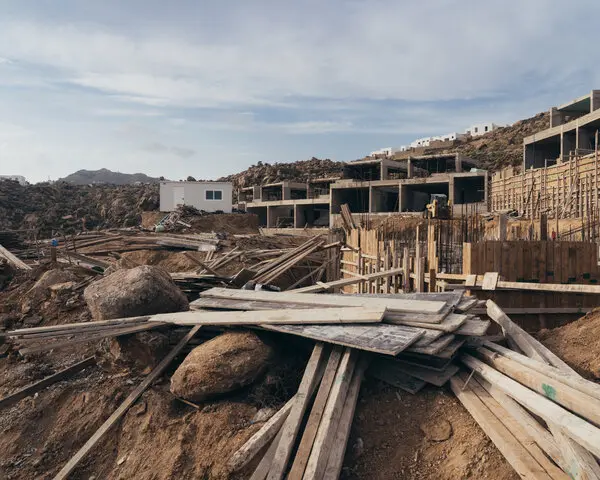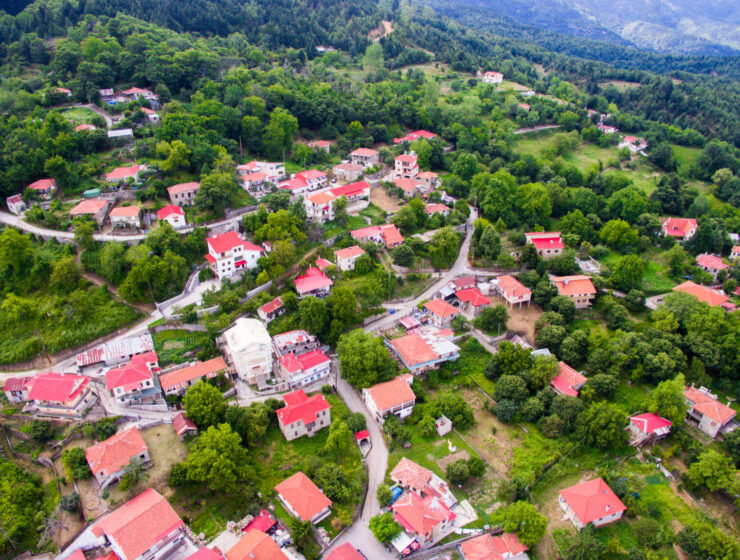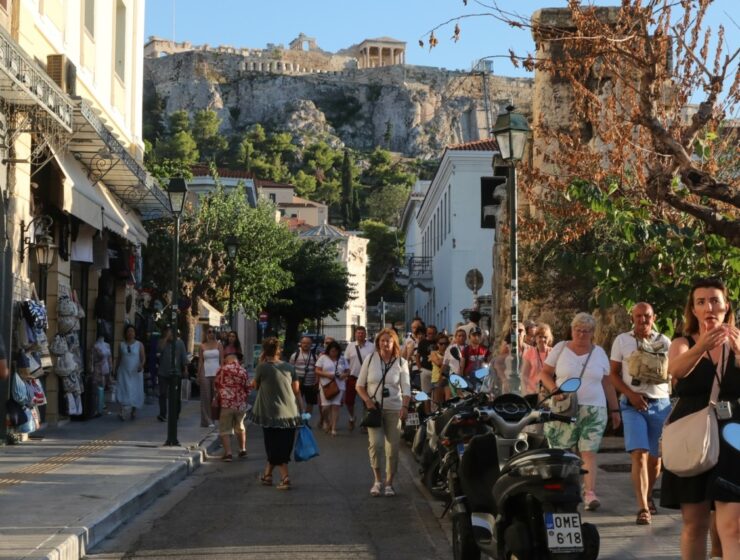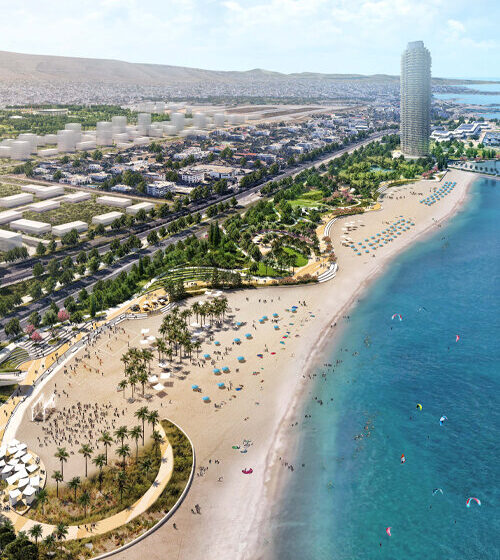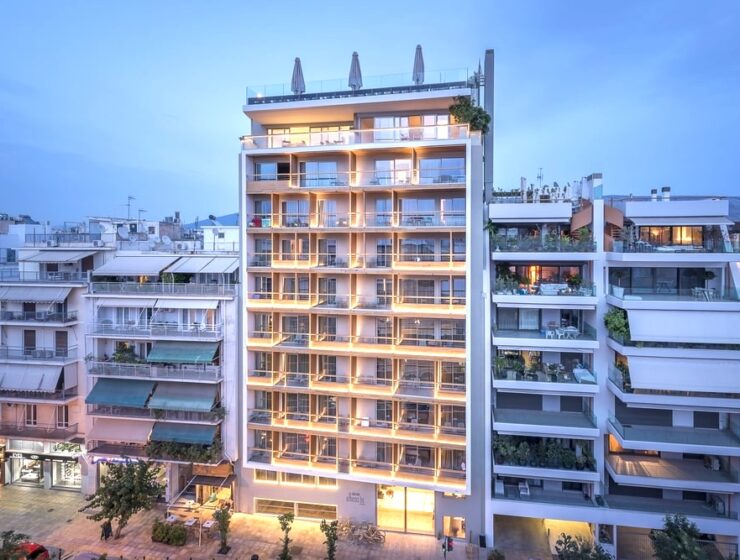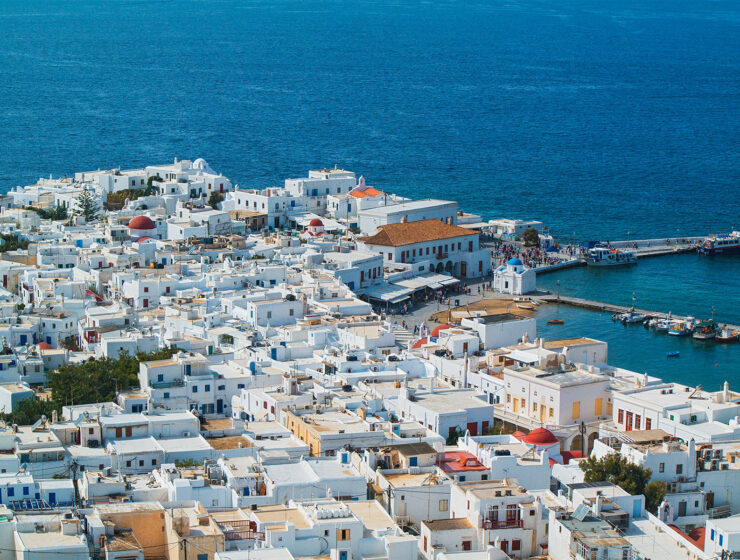A corruption scandal rocking Rhodes has taken a new turn as Greece’s Anti-Money Laundering Authority exposed €500,000 in suspicious assets tied to Urban Planning officials. From cash-stuffed homes to rented apartments and gold coins, the findings point to a money laundering scheme. With stamps, fake documents, and ancient coins seized, the investigation intensifies as authorities push for justice.
Tag: urban planning
Greece’s highest administrative court is set to rule on the legality of boutique hotels operating as short-term rentals in Plaka, the historic district beneath the Acropolis. Despite strict zoning laws protecting its residential character, entire buildings have been converted into Airbnb-style accommodations, raising concerns over mass tourism’s impact on the neighborhood. The case, brought by the Hellenic Society for the Environment and Cultural Heritage (ELLET), could set a legal precedent for short-term rentals across Greece, determining whether Plaka remains a living community or becomes a tourist enclave.
Between January 2023 and May 2024, only 59 out of the 929 illegal construction cases have been resolved.
In a major crackdown on corruption, Greek prosecutors have charged seven suspects linked to the Rhodes Urban Planning Authority with 13 serious offenses, including bribery, forgery, and operating a criminal organization. The year-long investigation, sparked by a 2024 complaint to the Hellenic Police’s anti-corruption unit, uncovered a scheme where officials allegedly extorted citizens for licensing favors, with fees starting at €2,000. While one suspect, the former department head, was released, the case has shaken public trust on the tourism-reliant island.
A new presidential decree in Greece restricts the expansion of settlements with fewer than 2,000 residents, limiting village boundaries to areas developed before 1983 unless a scientifically backed population surge justifies growth—excluding tourism demand. Drafted by the Ministry of Environment amid a national urban planning overhaul, the measure reverses earlier attempts to legalize informal sprawl, following a Council of State ruling against unconstitutional zoning practices. While aiming to promote sustainable development, the decree has raised concerns among landowners and urban planners over its strict limits on rural housing expansion.
In a decisive move against unauthorized developments, the Greek Ministry of the Environment and Energy…
A new wave of development is attracting more tourists to Plaka, a district dating back to Neolithic times. Locals are resisting by all means, while a crucial decision by the Council of State regarding Airbnbs in the historic area is pending.
A 300-year-old mulberry tree, a symbol of the Greek War of Independence and a candidate for protected status, has been uprooted in Trifylia, Greece, to make way for parking spaces, sparking outrage and lamenting the loss of a valuable piece of history.
Authorities have halted construction of a five-star hotel near the iconic Sarakiniko beach in Milos following public outcry. Environment Minister Theodoros Skylakakis confirmed that the project’s legality is under review, and all work has been suspended. The development, led by Unique Developments ATEE, aims to build a luxury complex near the famous volcanic landscape, sparking widespread opposition from locals and environmentalists. Concerns include potential damage to the site’s fossil-rich rock formations and its role as a habitat for endangered species. Officials and activists are now pushing for stricter protections against unregulated tourism expansion.
Greece is transforming a former airport into a €7.5 billion futuristic city called Ellinikon. This ambitious project will feature Greece’s first skyscraper, a massive shopping mall, a sprawling sports park, and luxury residences, all while prioritizing sustainability and coastal views. Expected to be completed by 2037, Ellinikon aims to boost Greece’s economy, attract a million new tourists annually, and create 80,000 jobs.
A new study on Athens’ tourism capacity reveals growing pressures on the city’s infrastructure, highlighting “tourism fragility” in highly saturated neighborhoods. With year-round visitor influx impacting waste, energy, and water resources, the study calls for proactive measures, including the establishment of a Sustainable Tourism Observatory, to balance growth and quality of life.
Greece proposes a 30 km/h speed limit in urban areas to improve road safety, reduce noise and air pollution, mirroring successful initiatives in other European cities. While challenges remain regarding enforcement and driver behavior, the initiative is supported by the UN and WHO and aims to significantly reduce pedestrian and cyclist fatalities.
Greece’s highest court, the Council of State, has invalidated new building regulation provisions that allowed increased building heights and density, ruling them unconstitutional. While nullifying these provisions, the court emphasized legal certainty by allowing already issued permits and ongoing projects to continue. This decision underscores the importance of adhering to constitutional principles regarding environmental protection and urban planning.
The Municipality of Papagos-Cholargos is set to transform Messogeion Avenue with a major redevelopment project aimed at improving accessibility, expanding public space, and boosting local businesses. Stretching over 2 km, the bioclimatic regeneration of this busy corridor will enhance traffic flow, create new parking spaces, and serve as a model for urban renewal in Athens. Mayor Elias Apostolopoulos emphasized the importance of community involvement, with public consultations and design presentations scheduled for December. The project promises to redefine the area and improve quality of life for residents and visitors alike.
The Greek government has announced a comprehensive overhaul of the urban planning and building licensing process, aimed at significantly reducing waiting times and increasing efficiency. New measures will streamline procedures for smaller and larger developments, with permits for up to two residences issued in 40 working days and larger projects processed within 80 working days starting March 2025. The initiative also aims to focus regulatory efforts on more complex developments and expedite existing application backlogs.
Santorini Follows Mykonos: Stricter Building Restrictions Proposed to Protect Landscape and Heritage
Santorini is set to follow Mykonos in adopting strict building restrictions to protect its iconic landscape and heritage. A proposed Special Urban Plan includes increased plot size requirements, a building ban in the Caldera, and designated zones for agriculture and sustainable tourism. The plan aims to curb overdevelopment while promoting balanced growth and preserving the island’s unique character.
Mykonos is set to implement stricter urban planning regulations with the proposed Special Urban Plan, which includes significant restrictions on construction for both housing and tourist accommodation. The plan aims to protect the island’s landscape while addressing infrastructure needs, such as water supply and waste management. It also proposes the creation of protected zones and limits on building sizes, particularly in high-demand tourist areas. As local stakeholders voice their concerns, the plan aims to balance tourism development with environmental preservation, with a public consultation period opening today.
Today marks the 120th anniversary of the death of Hellenic Army officer Pavlos Melas, one of the most important war heroes in Macedonia’s struggle for freedom. We will always honor the pure patriot, the ardent warrior, the symbol of the Macedonian Struggle. Born in Marseilles, France, he dedicated his life to liberating Northern Greece from Ottoman and Bulgarian control. His legacy as a national hero continues to inspire, with a new park in Thessaloniki set to honor his memory.
Athens and Thessaloniki will soon welcome quieter, cleaner streets with the deployment of 89 electric garbage trucks from Mitsubishi Fuso. The eCanter trucks, equipped with innovative noise-reducing refuse bodies, mark a major step towards sustainable urban living in Greece.
Athens’ sidewalk safety issues have once again hit international headlines, with The Guardian highlighting the city’s persistent struggles with inadequate pedestrian infrastructure. Uneven pavements and illegal parking pose significant hazards for both locals and tourists, prompting calls for a comprehensive overhaul of urban mobility and accessibility measures.



